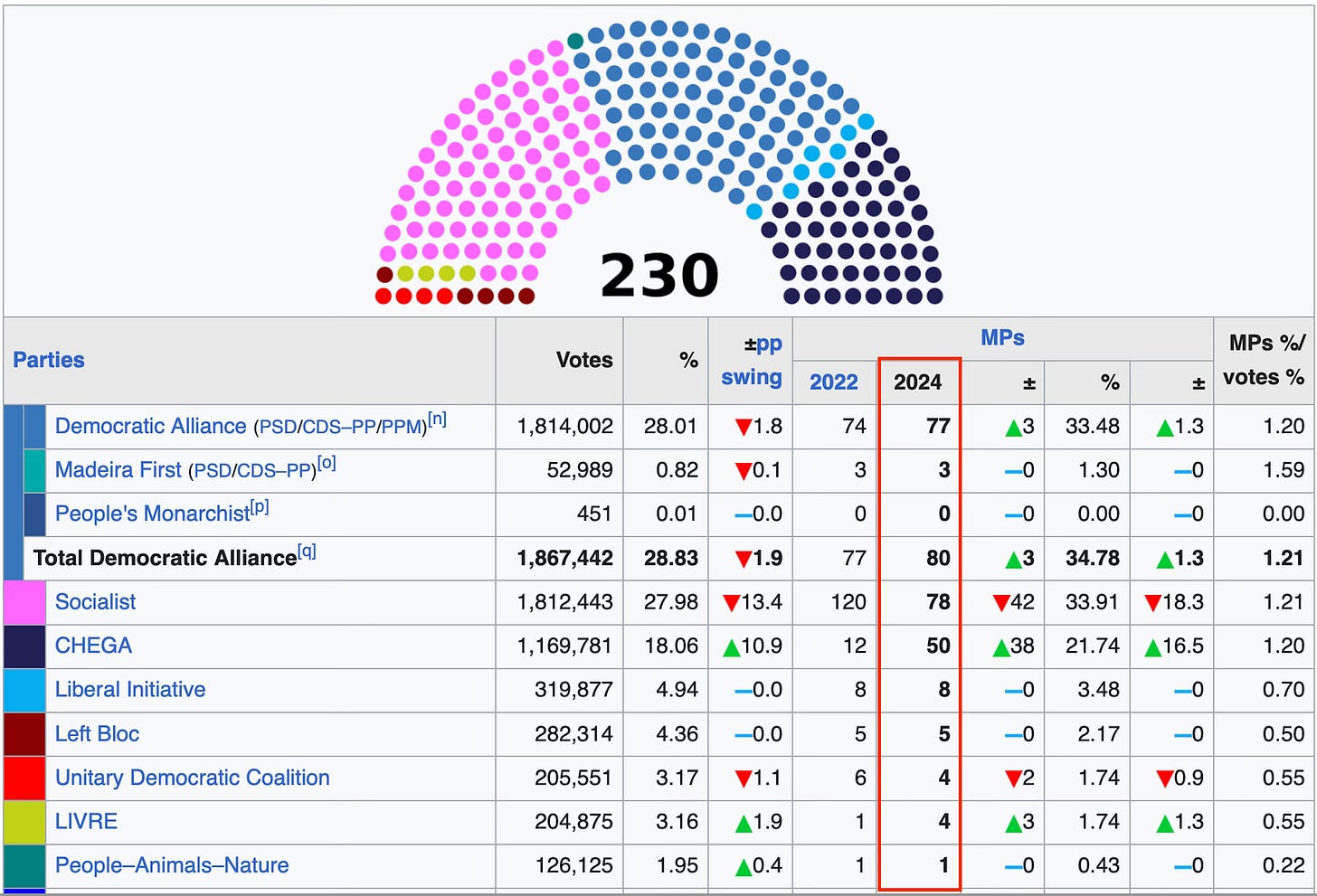No cooperation with the far-right in Portugal
#78
Dear Friends of Democracy,
Today, we stop at Portugal.
I am a bit late, I have to admit, since Portugal's new prime minister was sworn in last week.
His name is Luís Montenegro, 52, and he is the President of the Social Democratic Party (PSD), a centre-right party.
Montenegro also leads the so-called Democratic Alliance (Portuguese: Aliança Democrática, AD), which is composed of the Social Democratic Party (PSD), CDS—People's Party (CDS–PP), and People's Monarchist Party (PPM).
As the chart on top shows, Montenegro’s Democratic Alliance won 80 of 230 seats in March's national elections.
So, Montenegro will lead a minority government.
Therefore, it won't be easy to govern.
But there is some good news.
First, there is an elected government again. Six months before, Montenegro's predecessor, António Costa from the Socialist Party, resigned after police had raided his official residence, and the country's attorney general confirmed Costa was being investigated under a corruption probe.
Second, Montenegro wants to lower taxes for the middle class and foster friendlier conditions for business. He aims to lure back one-third of Portugal's younger citizens who have migrated abroad in search of better-paying jobs.
Third, Montenegro has vowed not to work with the far-right Chega, whose parliamentary representation has more than quadrupled to 50 lawmakers in the 230-seat legislature.
Fourth, Montenegro is obliged to seek support from the Socialist Party, which has governed the country for the past eight years. Piecemeal agreements between the country's two largest parties appear possible because otherwise, the far right could make further gains by campaigning against ineffective mainstream political forces.
In summary, the government has started working – without being supported by the far-right party. Not the worst news from Portugal.
See you in Europe,
Johannes



